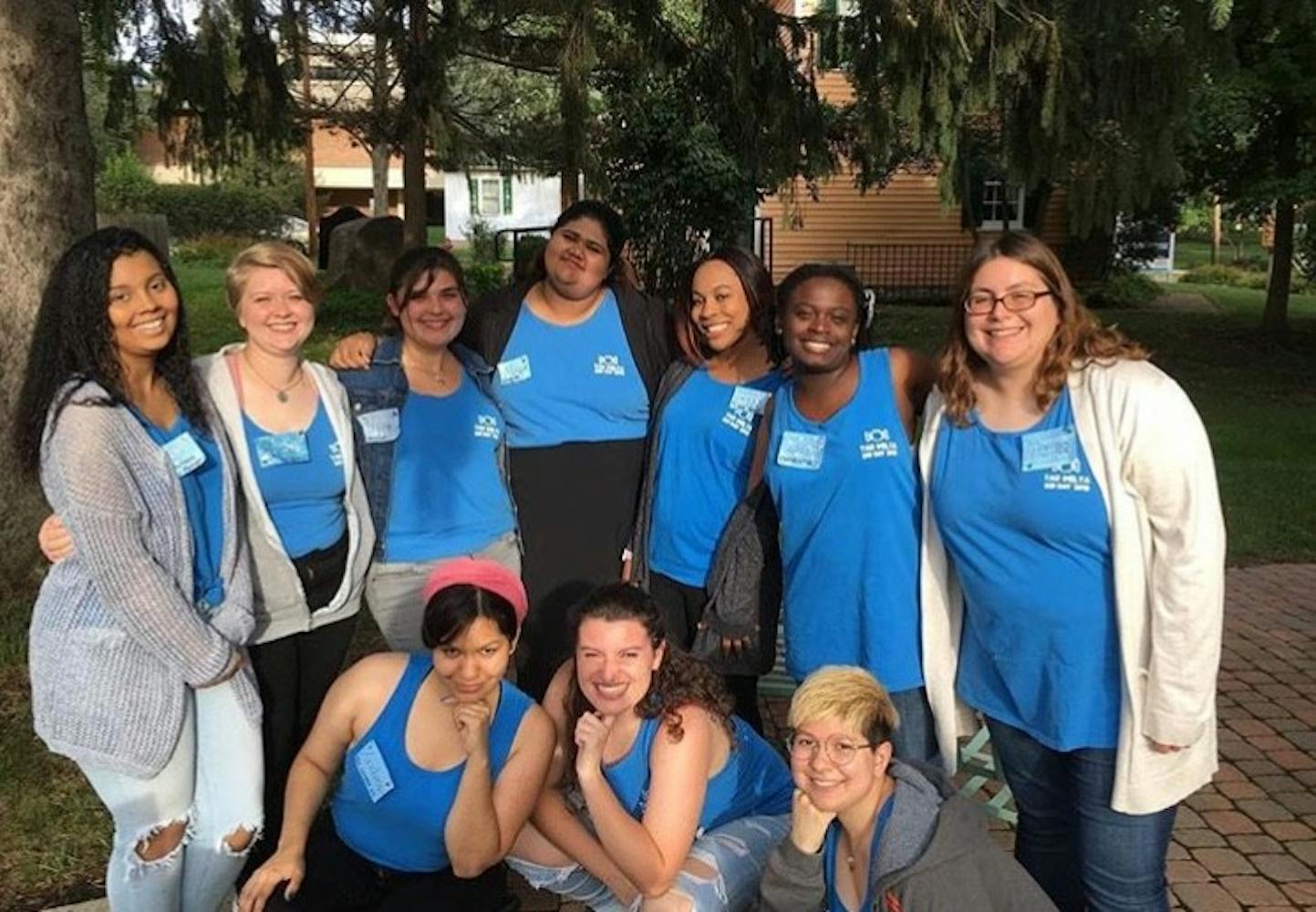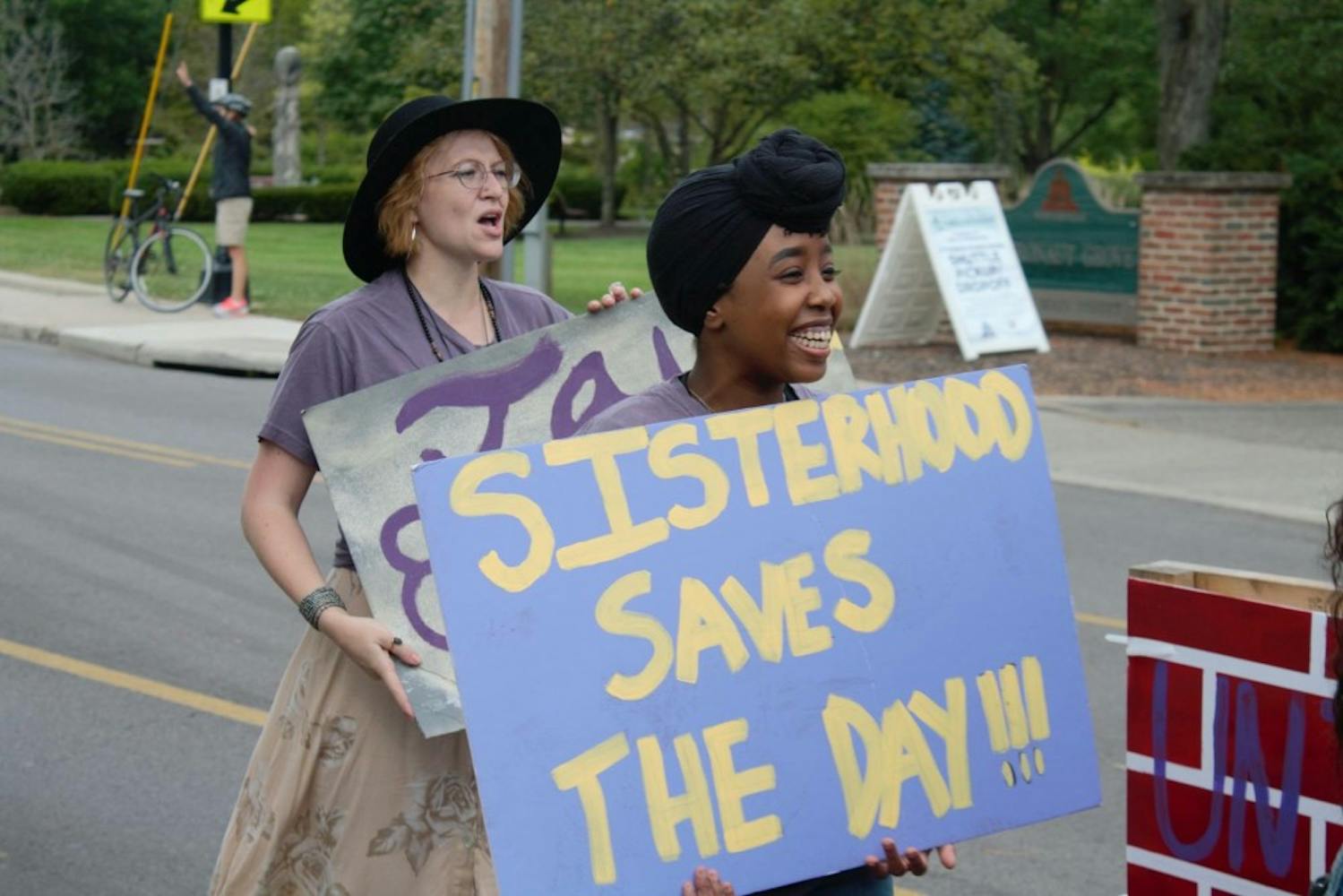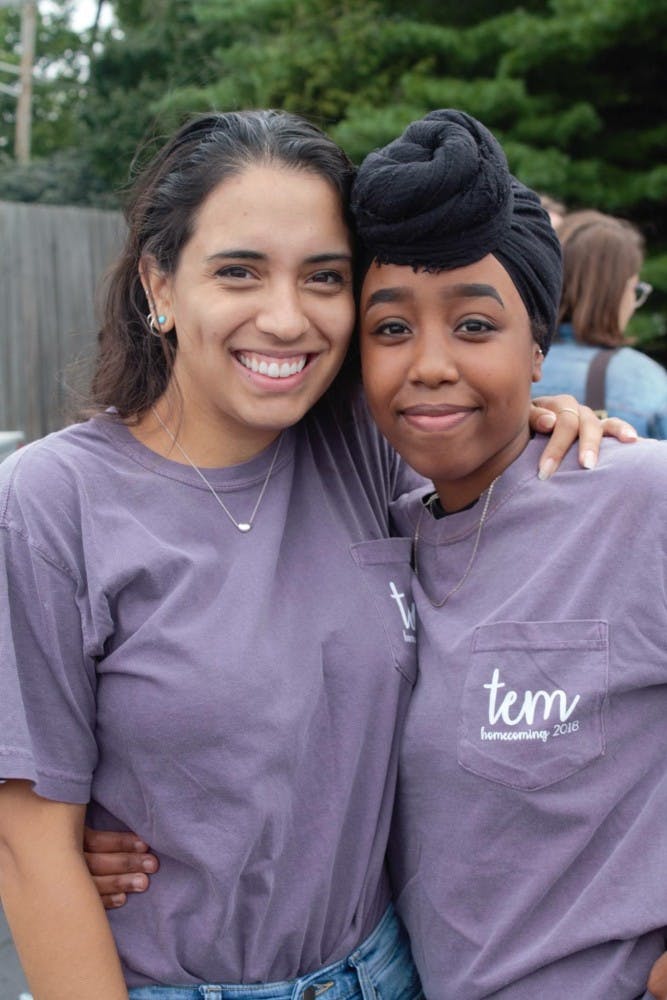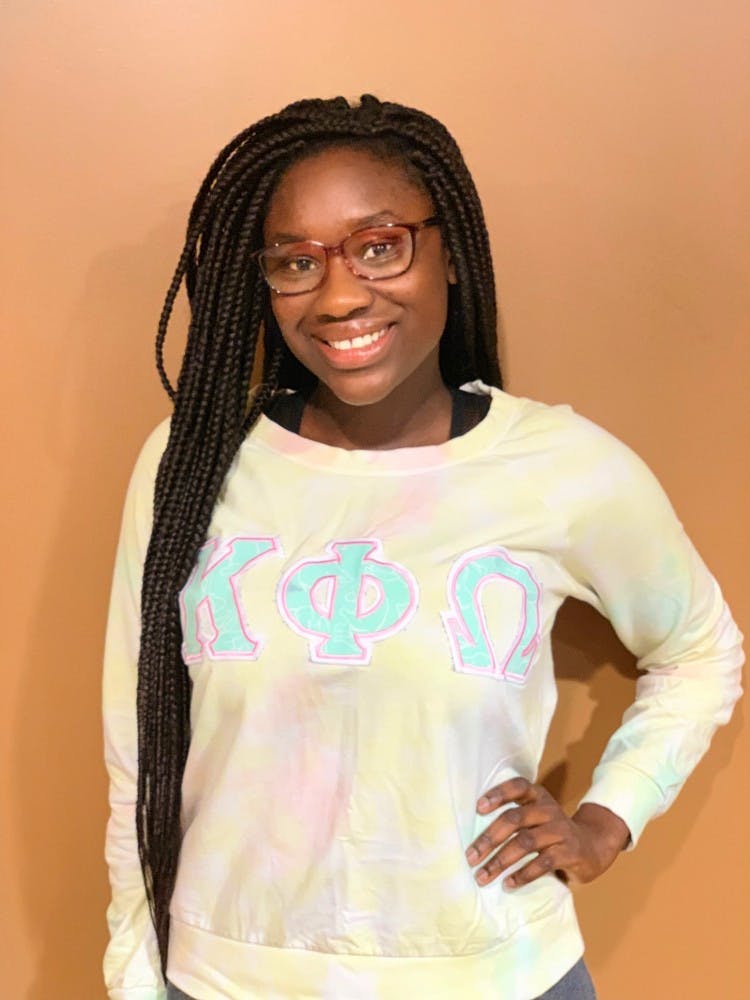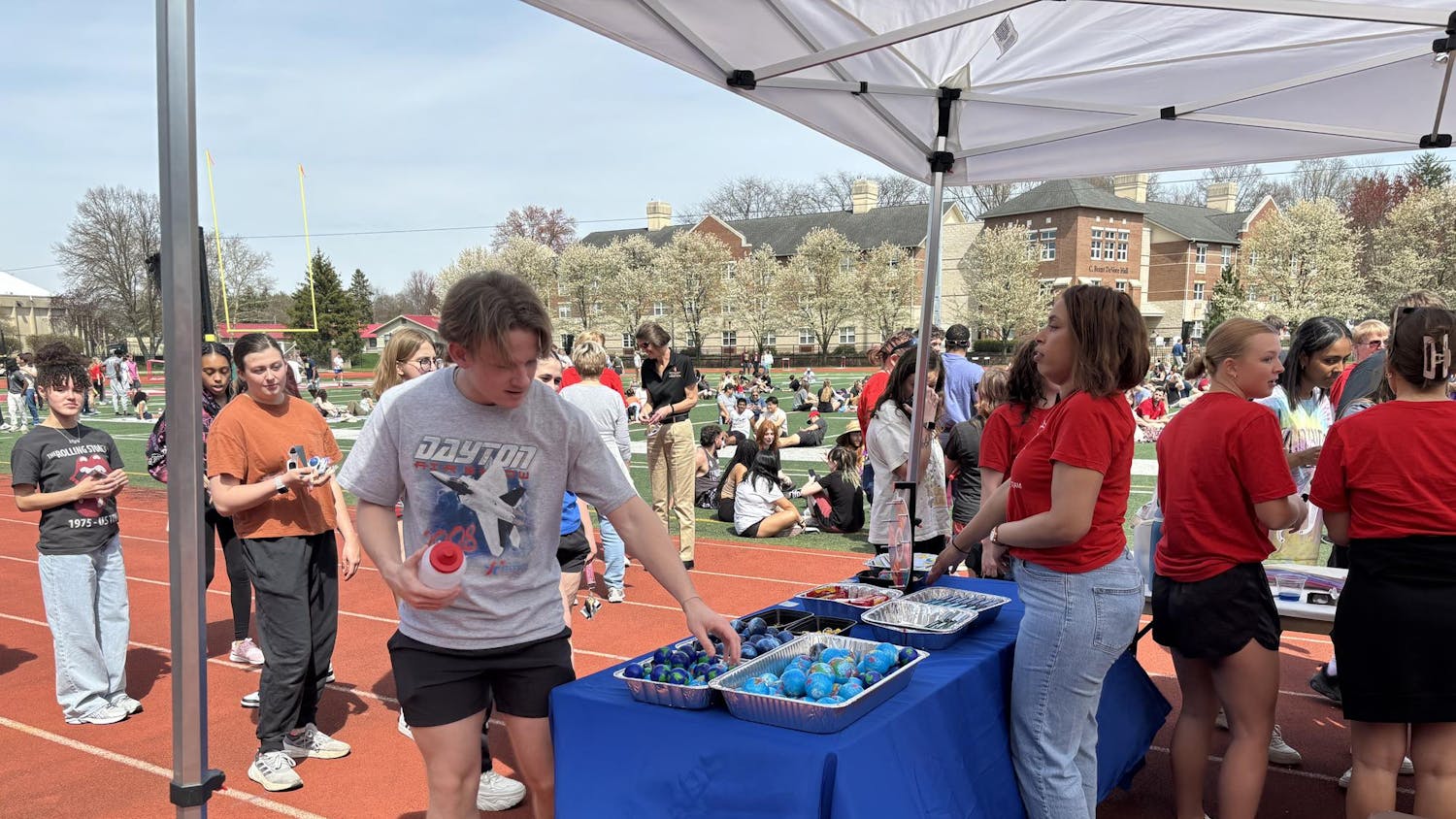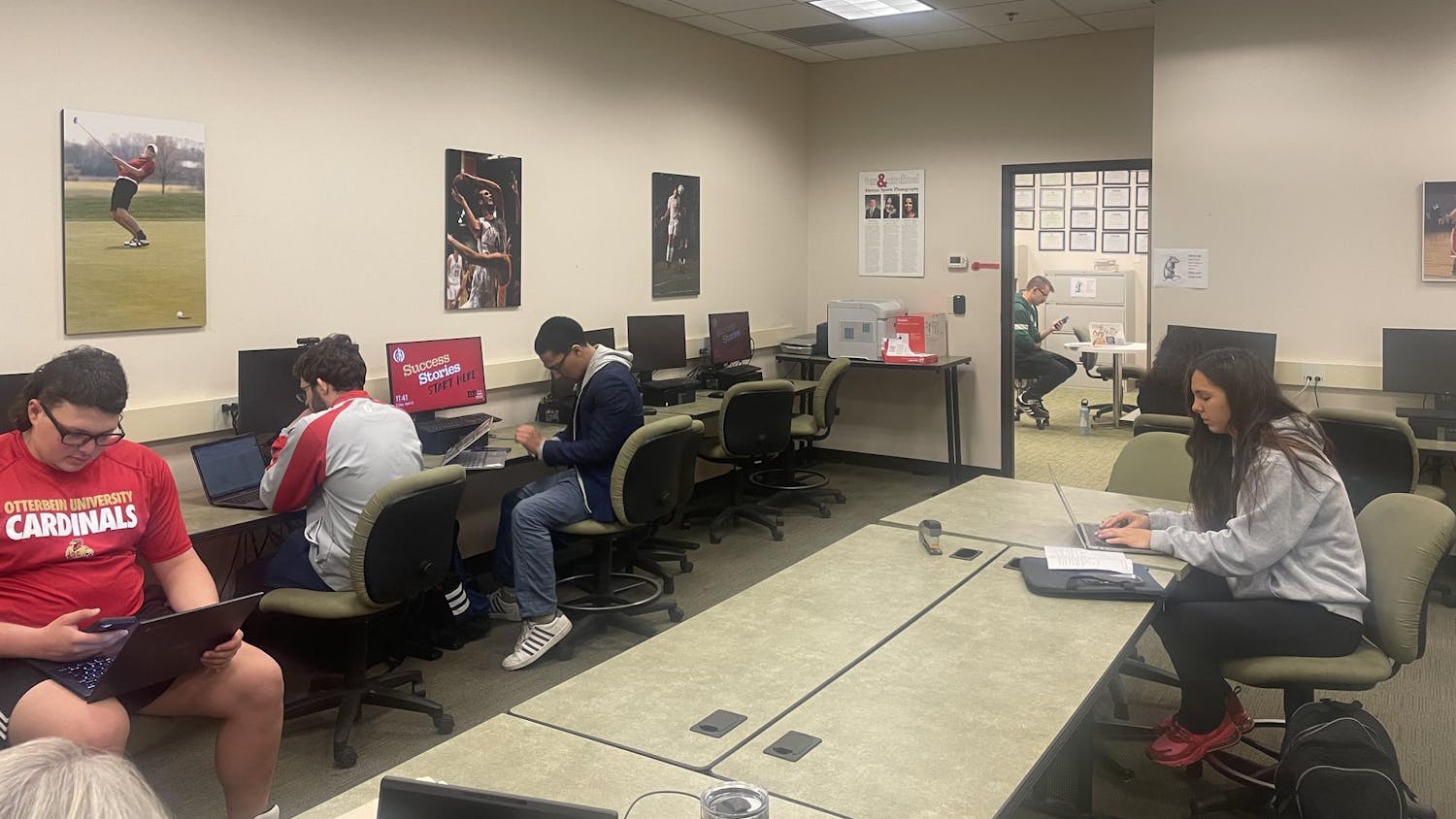Bridging the divide in Greek Life
Widline Milor
8 November 2018
When people think of Greek life, they often think of the stereotypical popular preppy girls and jocks. People also associate sororities and fraternities with hazing, parties and alcohol. Although some of these characteristics exist among chapters, there are other underlying issues within Greek life that do not receive as much attention.
The Lack of Diversity
Sororities lack diversity Racial and cultural tensions are evident within Greek chapters at Otterbein, a predominately white institute (PWI). Choosing to attend a PWI can be a challenge for people of color and different cultures, and it is also difficult for them to know what to get involved in. The possible risk of not being able to fit in is always present. For this reason, many are skeptical about joining Greek life. Women of color and various cultures especially are discouraged by the lack of diversity of the sororities on Otterbein’s campus. Being diverse is not only about aspects of personalities. It includes race, ethnicity and representation.
“Being a part of Greek life as a person of color has being one of the best and challenging things I could have done here at Otterbein,” Martha Nyarko, an active member of Kappa Phi Omega sorority, said. “There are times that I feel that Greek life is not diverse enough, but despite that issue, I have found a home here.”
Cultural Misappropriation and Racism
One factor that makes people of color skeptical about joining Greek life is the notion of appropriation; I am specifically referring to cultural appropriation. Cultural appropriation is the act or instance of using things from a culture that are not your own. This notion may as well be cultural misappropriation, especially when people use things from a different culture while neglecting to completely understand the elements of what they are using and what they mean. Cultural misappropriation is a slippery slope to be on. People in our society today don’t always understand how or why wearing another culture’s headdress or painting one’s face could be considered offensive. Some may say “Hey, we are just trying to enjoy ourselves!” (Especially someone belonging to a dominant group or the majority.) However, cultural misappropriation adds more fuel to stereotypes. As this happens, it diminishes the cultural significance of a custom or behavior. This may cause cultures who have been oppressed to feel worse when it comes to their painful pasts. No one should want to add on to the oppression of the oppressed, especially in our school system.
One example of cultural misappropriation on campus happened during Otterbein’s Greek Week 2018. As a part of their act for harmony night, a member of Sigma Alpha Tau sorority (OWLs) sported an Afro wig to impersonate an African American fictional character, Chad Danforth from the film High School Musical. The costume was not approved by students of color in different sororities, but the chapter disregarded the student’s disapproval of the wig. They failed to understand the controversy that this costume might create, as do so many others.
“I’m not naive. The whole situation really made me see that most of campus and Greek really doesn't care about diversity and inclusion,” Rachel Austin, a member of Theta Nu sorority, said.
Another similar instance happened a few years ago with the Sigma Alpha Tau Sorority. During Greek Week festivities, they reenacted the West Side Story and rubbed dirt on their faces and bodies to make themselves look darker and dirty. They claimed to have used the dirt to exemplify that the characters were street kids. Again, the neglect to evaluate their actions and the possibly backlash are evident.
In 2015, the University of Oklahoma chapter of Sigma Alpha Epsilon was shut down for singing, “There will never be a nigger in SAE.” The chant was taught throughout the campus to purposely exclude people of color (Noel, 1). Earlier this year, Syracuse University chapter of Theta Tau fraternity was outed last week for using racist, anti-Semitic and homophobic slurs in an online video (Noel, 1).
Disregarding the importance of another’s culture is demeaning. Instances like this expose the harsh reality of Greek life, not only at Otterbein but at the other Universities.
It shouldn’t be up to a non-dominant group member to inform or educate the majority about racism and cultural misappropriation. A black woman or woman of color somehow always becomes responsible for educating her white sisters. Institutional racism is frequently normalized and people in dominant groups continue to live in ignorance. Members of Greek life need to take responsibility for themselves.
There’s a need for them to educate themselves so that they can avoid tension and offensive behavior. For example, the “Don’t say the N-word talk,” is always awkward. People of color on campus have a hard time trying to discourage use of the word because many white students find justification for using it, whether it is singing along to a song or quoting a video. “They don’t get it,” Austin said. “I’m reminded of that every day. I’m not sure that would be any different if I wasn’t in Greek life, but I am. The ignorance is always in my face.”
According to Anthony W. James, in The College Social Fraternity Antidiscrimination Debate 1945-1949, By the early twentieth century, some fraternities had written clauses that only required “whiteness and Christian affiliation for membership.” These restrictions are what began the start of black fraternities and sororities and The Divine 9 Greek chapters.
Efforts of inclusion and diversity is important, especially to those who do not attend HBCUs and still want to be involved in Greek life.
Efforts for Inclusion
Despite the challenges, many chapters pride themselves on being diverse and many girls have found their home away from home in a supporting and loving sorority. “What makes Delta so special is that we can be different, but together,” Hannie Eliades, president of Tau Delta sorority, said. “Our motto is ‘to thine own self be true,’ and we really try to live up to this by being a family that is accepting of all types of diversity.”
Some sororities on campus have made the effort to improve the lack of diversity on campus by actively accepting members of different races and cultures. “Greek life brings not only every corner of campus together but every corner of the world together.” Madison O'Neill, president of Tau Epsilon Mu sorority, said.
Inclusion is about more than just accepting different people; it’s about truly wanting to understand them and respect them. “We’re at a turning point in Greek life’s acceptance of diversity. Sororities need to adjust,” Selena LaBair, member of Tau Epsilon Mu sorority, said. “I do, however, pride myself on being a part a chapter that holds a strong desire to be a home to people of all backgrounds.” Race is an adjective, not a noun. It does not define a person or their ability to be involved and inclusive.
There is change that needs to be made within Greek life at Otterbein, but no one has to do it alone. Chapters should be able to hold one another accountable in making Greek life a safe, supportive and welcoming environment for all students to promote the sisterhood that exists within each chapter. “Joining Greek life is almost like bridging the divide that most people are afraid to fill. We can do it through sisterhood. It’s a strong foundation that will last a lifetime.” Shirley McCullough, a new member of Tau Epsilon Mu sorority, said.

